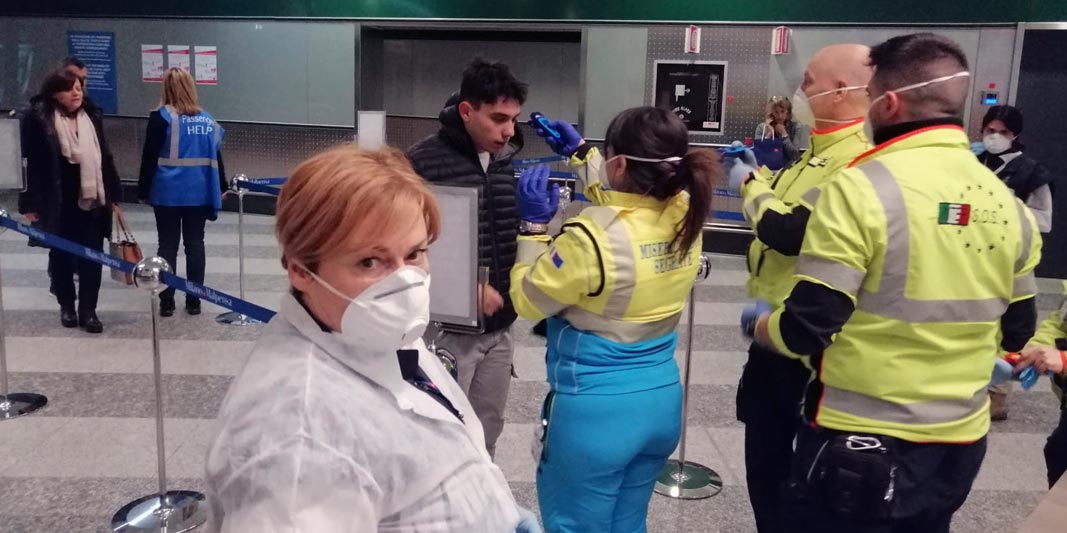Coronavirus & The Social Distancing Problem
Here are some thoughts on coronavirus the social distancing problem. The next step is to figure out how social science could help with it:
Epidemics and pandemics spread among human populations because the viruses and bacteria that cause them exploit a key evolutionary asset of the human species, namely, our unique pro-social nature. Helping others is celebrated across all cultures and times as the greatest of all moral virtues, but is also that part of our nature that viruses have evolved to best turn against us. That is why “social distancing,” the elimination of physical contact between individuals, although perhaps necessary to some degree seems so unnatural and is so hard to sustain.
Despite our physical weakness relative to other creatures, our ability to create and maintain strong social bonds that can extend outward to indefinitely many other human beings has enabled our species to dominate all large biological competitors. Through socialization, we learn from one another, benefitting from others’ experiences and information, to better and even save our lives. This, together with social cooperation, our innate desire and ability to help one another even at risk and cost to oneself, are perhaps the greatest advantages that humans have. Especially when those closest to us – our families and friends – become ill, we yearn to reach out to them, to embrace them, to caress them, to physically and emotionally comfort them.
With the onset of the coronavirus pandemic, there is a dawning realization that the psychological, social, and political problem of how to sustain social distancing, without draconian authoritarian measures, can potentially challenge the very existence of open societies. The increasing limitations on global transportation, the closing of national borders, cities and towns, the progressively drastic restrictions on all public gatherings, the fencing off of neighborhoods and homes, and especially the impetus not to touch family or friends constitute a forceful, piercing and dishearteningly effective attack against the better angels of our nature. This attack encourages all those noxious “—isms,” like egotism, chauvinism, racism, ethnocentrism, xenophobic nationalism -– that seed loneliness, indifference, violence and war. And in fact, without social cooperation and mutual aid – between neighbors, communities, nations, and even strangers – epidemics and pandemics may sicken and kill many more than if there were no help from others to share relevant information, technology, and trained personnel.
In this age of increasing political polarization, anger and disbelief, a concerted push for cross-border and cross-community cooperation may seem a hard sell. (Iran’s regime deems American offers of help “repulsive”). But here there is also opportunity to help put societies on a different track. Consider this example from history: Before the Roman Emperor Constantine became a Christian, Christianity had already gained the allegiance of the majority of the Empire’s population. This occurred, in part, because the early Christians offered spiritual equality and comfort to the underprivileged (slaves, minorities, women) but also because they gave water and warmth to Romans infected by plague and other diseases, and so helped many to survive as the Romans’ abandoned their own and left them to die alone.
Now, I am not proffering Christianity as the solution to the social distancing problem. (During the genocide in Rwanda, that most Christian of African nations, when Christians massacred Christians and Christian nations stood idly by, it was the small minority of Sunni Muslims that offered aid and protection to the afflicted.) Neither do I think religion is a necessary part of the solution (I and many others are not believers), although Pope Francis’s call for priests to tend the coronavirus sick while avoiding contagion seems a laudable step in a good direction. Rather, I suggest that we might better reflect and act as Albert Einstein, that otherwise most self-isolating and solitary figure, put it: “Strange is our situation here upon the earth. Each of us comes for a short visit, not knowing why, yet sometimes seeming to a divine purpose… That we are here for the sake of other men – above all for those upon whose smile and well-being our happiness depends, for the countless unknown souls with whose fate we are connected.”
This image was originally posted to Flickr by Dipartimento Protezione Civile at https://flickr.com/photos/141202146@N02/49496883202 (archive). It was reviewed on 24 February 2020 by FlickreviewR 2 and was confirmed to be licensed under the terms of the cc-by-2.0.


